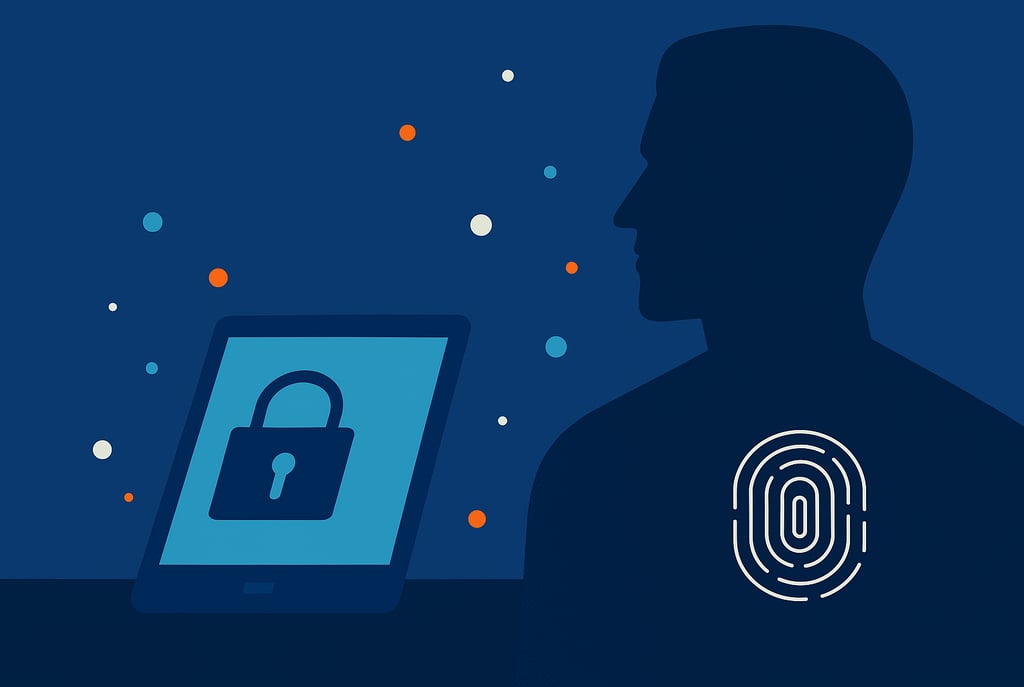Building Digital Trust: What CSCW 2025 Teaches Us About Communication, Data, and the Human Side of GovTech
Exploring trust and communication in digital government
10/22/20256 min read


This week, our Chief Science Officer, Sarah Rajtmajer, is attending the 2025 ACM Conference on Computer-Supported Cooperative Work and Social Computing (CSCW) in Bergen, Norway. CSCW is a premier conference where researchers from around the world gather to present findings that sit precisely at the intersection of technology, society, and human behavior. The conversations happening there carry a particular urgency this year.
A clear theme is emerging from the research, one that challenges conventional assumptions about digital transformation. The future of digital government isn't about collecting more data or deploying more sophisticated tools. It's about something far more fundamental and harder to quantify: trust.
Several papers presented at CSCW 2025 converge on an insight that many local government leaders already intuitively understand. Technology alone cannot build confidence in government. Trust develops when people see their own values, voices, and lived experiences genuinely reflected in how technology and communication are designed. The challenge lies in translating that into practice.
1. From Efficiency to Empathy: Why Speed Isn't Everything
When governments evaluate new technologies—whether analytics dashboards, AI chatbots, or public engagement platforms—their initial questions typically focus on efficiency. How much time does this save? What are the cost reductions? How many additional requests can we process?
These are legitimate questions. But what several CSCW papers reveal is more nuanced: efficiency without empathy doesn't simply fail to build trust. It can actively erode legitimacy.
Consider the research from Zhang and colleagues in their paper Data and Technology for Equitable Public Administration. They interviewed city staff who were deeply committed to equity work, and these professionals described a persistent tension in their daily practice. The digital tools they're provided—dashboards designed to measure "impact"—often strip away the contextual nuance that makes their work meaningful. They find themselves facing a choice: focus on what's measurable, or focus on what actually matters.
As one city employee observed, the numbers indicate how many people received services, but they cannot capture the story of the single mother who finally secured childcare support, or the formerly incarcerated individual who found stable housing. The dashboard doesn't register these narratives, yet these narratives represent the purpose of the work itself.
Research by Guridi, Cheyre, and Yang on how public servants and elected officials approach AI tools that analyze citizen comments reveals similar priorities. One might assume that the primary appeal of such tools would be speed—the ability to process thousands of public comments efficiently. The reality proves more complex.
Politicians expressed concern about tools conveying fairness and transparency to the public. Their focus was on legitimacy: would constituents believe their input had been genuinely considered, or would they perceive the process as algorithmic sorting? Career staff, meanwhile, sought tools that would enhance their capacity to interpret what citizens were expressing—to become more empathetic readers of public input, not less.
The lesson: human judgment isn't an inefficient bottleneck to be engineered away. It's what confers legitimacy on digital governance. Technology should augment our capacity for empathy, not replace it.
2. Participation Is the New Transparency
For years, the open-data movement has operated on a straightforward premise: publication equals transparency, and transparency builds trust. Make the data accessible, establish a public portal, and legitimacy will naturally follow.
The research emerging from CSCW 2025 suggests a more complex reality. Transparency is necessary, certainly, but not sufficient. What transforms transparency into trust is participation.
The paper Staking a Claim in Data by Jonas, Timm, and Su examines a rural wildlife agency that departed from conventional practice. Rather than simply publishing datasets about local wildlife populations and hoping for public engagement, they invited hunters—individuals with intimate knowledge of the landscape—to help collect and interpret the data.
These weren't traditional "citizen scientists" in the academic sense. They were residents who became active collaborators, described by agency staff as "the agency's eyes and ears." The outcome proved significant. Their involvement didn't merely improve data quality (though it did). It fundamentally transformed the relationship between residents and the state agency, fostering new forms of mutual respect and bidirectional accountability.
The implications for local governments are considerable:
Don't just publish your data. Invite residents to help interpret and contextualize it. What does this spending pattern actually mean in our community? What are we missing?
Don't just announce decisions. Show the receipts. Walk people through how public input actually shaped the final call, even when you couldn't accommodate every request.
Don't just track participation metrics. Celebrate participation as genuine co-governance. When residents contribute their time, knowledge, or perspective, treat it as the gift it is.
This represents a fundamental shift from viewing residents as consumers of government information to recognizing them as collaborative partners in understanding and shaping their community. That transition—from disclosure to dialogue—builds the kind of durable legitimacy that can withstand controversy and difficult decisions.
3. Communication as Care in a Polarized World
Few challenges test public trust as acutely as crisis communication—particularly in polarized environments.
Wang and Kogan analyzed thousands of tweets from government agencies and politicians during the early months of the COVID-19 pandemic, examining how different voices communicated during a period of peak uncertainty and polarization. Their findings carry significant implications.
While politicians' messages often reflected partisan framing, bureaucratic agency accounts told a different story. Local health departments, emergency management offices, and public works departments maintained voices that were steady, factual, and apolitical.
More importantly, these consistent institutional voices helped set the tone for political messaging that followed. Even amid national polarization, credible local voices maintained the capacity to anchor public understanding.
This finding holds particular importance for local government communicators. When national conversations fracture—whether around public health, immigration, climate, or other contentious issues—communities look to local institutions for clarity, stability, and context. Every social media post, livestreamed press conference, and emergency alert does more than convey information. It provides reassurance. It signals: we remain present, attentive, and committed to serving you.
Communication, in this light, becomes a form of public care. It's how institutions demonstrate their ongoing commitment to communities during periods of uncertainty. In polarized environments, that consistent, trustworthy local voice gains even greater value.
4. Trust as Infrastructure
When we examine these threads together—empathetic technology design, participatory data practices, consistent and caring communication—a compelling pattern emerges.
Trust itself functions as civic infrastructure.
Consider physical infrastructure—roads, water systems, bridges. When functioning properly, these systems become invisible. We notice them primarily through their absence or failure. Yet everything depends on their continued operation.
Trust operates according to similar principles. In its presence, digital systems can achieve remarkable outcomes. They can modernize operations, improve service delivery, and connect people to resources more effectively. Without trust, however, those same systems remain merely code on servers—tools that people avoid, ignore, or actively circumvent.
With trust, digital systems transform into something more powerful: bridges that forge genuine connections among residents, officials, and institutions through shared understanding and mutual respect.
5. Looking Ahead: What This Means for Your Community
As Sarah engages with scholars and practitioners at CSCW 2025 this week, we're reflecting on how these insights translate into practice for the cities, counties, and communications teams we work with.
Several priorities emerge:
Design digital tools that humanize data rather than abstract it. Every data point represents a person or a community. Dashboards and reports should reveal context and narratives, not obscure them through aggregation.
Measure success through community trust, not solely through operational metrics. Track response times and cost savings, certainly. But also assess: do more residents feel heard? Do they understand how decisions are made? Do they perceive themselves as partners in governance rather than merely as recipients of services?
Use technology to deepen listening capacity, not just to amplify messaging. Social media is more than a broadcast channel. Analytics serve purposes beyond demonstrating impact. These are tools for understanding what communities need, value, and worry about.
The researchers at CSCW 2025 are pointing toward a vision of digital government that is more participatory, more empathetic, and more accountable. That's the vision we're committed to helping build.
Let's Talk
If your local government is seeking to strengthen the human dimension of its digital presence—whether rethinking analytics strategy, enhancing social media engagement, or making data more relevant and accessible to residents—we welcome the conversation.
Our focus isn't on technology for its own sake. We're committed to ensuring that when your community engages online, they don't merely encounter information. They see themselves reflected. They see their concerns taken seriously. They see a government working with them, not simply for them. Get in touch here!
